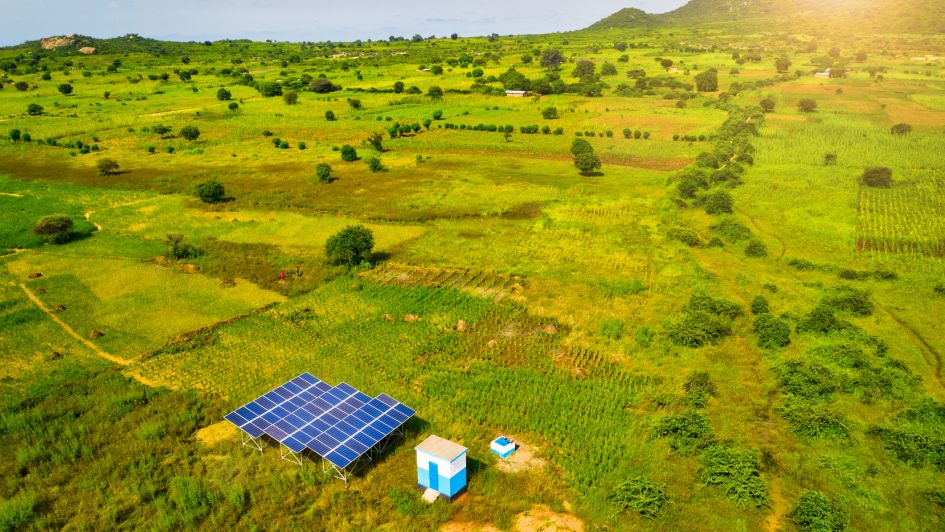In 2015, the 193 UN member countries embraced the Sustainable Development Goals with optimism, aiming by 2030 to achieve universal prosperity and environmental protection while improving global living standards. A decade into this initiative, however, this initial enthusiasm has faded, replaced by a pervasive sense of failure as the final third of the timeline approaches. UN Secretary-General António Guterres has urgently noted, "We must accelerate action for the Sustainable Development Goals, and we don’t have a moment to lose."
Key goals, such as ending global hunger (SDG 2) and ensuring universal energy access (SDG 7), have fallen notably short of expectations. In 2015, the hope was that by 2030, no one would suffer from hunger, malnutrition would be eliminated, and everyone would have access to affordable, reliable, sustainable, and modern energy.
Today, as the world celebrates World Food Day under the theme, Right to Foods for a Better Life and a Better Future, the ambitious targets of 2015 seem to be increasingly impossible. The UN’s Food and Agriculture Organization (FAO) ‘State of Food Security and Nutrition in The World (2024)’ report reveals global hunger rose sharply from 2019 to 2021, and has persisted at nearly the same level for three consecutive years. It is estimated that between 713 and 757 million people faced hunger in 2023.
The situation is particularly stark in Africa, the only region where GDP contributions from agriculture is higher than that of any other sector, the region continues to lag its global peers on food security and nutrition. The FAO report states that 300 million out of the estimated 733 million people facing hunger globally are in Africa, that is about one in every five people. Worse still, of the 582 million people expected to be chronically undernourished at the end of the decade, more than half will live in Africa.
Much of Africa’s food crisis can be attributed to local factors such as low agricultural productivity, limited mechanization, low access to agricultural finance, information asymmetry and inefficient farmer advisory services or external factors including climate change, volatile prices of agrochemicals, fertilizers and the price of oil. However, a consistent point underlying many of these issues is persistent energy poverty. The lack of energy access on the continent—particularly in peri-urban and rural areas, where most farms exist—has inhibited the widespread adoption of advanced technology solutions and mechanization for agriculture.
The linkage between energy access and food security in sub-Saharan Africa is significant and multifaceted. Reliable energy is crucial for modern agricultural practices. It powers irrigation systems, machinery for planting and harvesting, and processing facilities. Limited access to energy can reduce agricultural productivity and yields, directly impacting food availability. Furthermore, energy is essential for food processing, storage, and preservation. Without access to electricity or sustainable energy sources, perishable goods spoil, leading to significant food waste. Improved energy access can enhance food quality and extend shelf life. Lastly, energy enables better transportation of food products from rural to urban areas. Improved transportation infrastructure powered by reliable energy sources can enhance market access, allowing farmers to sell their produce more effectively and ensuring food flows from regions of high production to those where it is scarce.
A 2023 report by Power for All reveals that placing distributed renewable energy (DRE) at the forefront of mechanization can yield a 10 percent reduction of greenhouse gas emissions while driving economic gains as high as $24.5 billion per year—larger than the GDP of most African countries.
Despite the clear link between increased energy access and food security, a clean energy transition for agriculture has not been prioritized at local and national levels. Sub-Saharan Africa now accounts for 83% of the global energy access deficit, up from 50 percent in 2010 with population growth outstripping new electricity connections. This poorly contrasts with Central and Southern Asia, where the energy access gap shrank from 414 million in 2010 to less than 33 million in 2022.
It’s to be applauded that the majority of African countries (85%) have developed agricultural transformation plans (ATPs) to expand the economic power of each nation’s agribusiness. However, only a fraction of these plans name energy, let alone renewable energy, as a critical input. In fact only 26% of existing plans mention climate smart or sustainable agriculture. Very few have included DRE, the most viable option for peri-urban and rural farming regions.
Driving adoption of DRE in developing countries can localize clean, productive use of energy, mitigate current and future emissions, and support smallholder farmers' resilience to the effects of climate change. In particular, DRE can help address energy and economic inequities that are stifling Africa and its food systems’ ability to meet the demands of a growing population in a climate-changed world.
For this to happen, global collaboration through partnerships among governments, civil society, and the private sector is crucial to promote the adoption of decentralized renewable energy (DRE) solutions in agriculture. There should be a focus on investing in solar, wind, and biomass energy systems for farms and rural areas. Additionally, national governments, particularly in Africa, need support to enhance rural energy and financial infrastructure, ensuring reliable and affordable access to clean energy for agricultural activities. It's also vital to foster knowledge creation and sharing through research into energy-efficient agricultural practices and technologies, such as precision farming, sustainable irrigation, and energy-efficient machinery, and to implement training programs for farmers on the benefits and usage of renewable energy technologies. In the words of Secretary-General António Guterres, “we don’t have a moment to lose."
